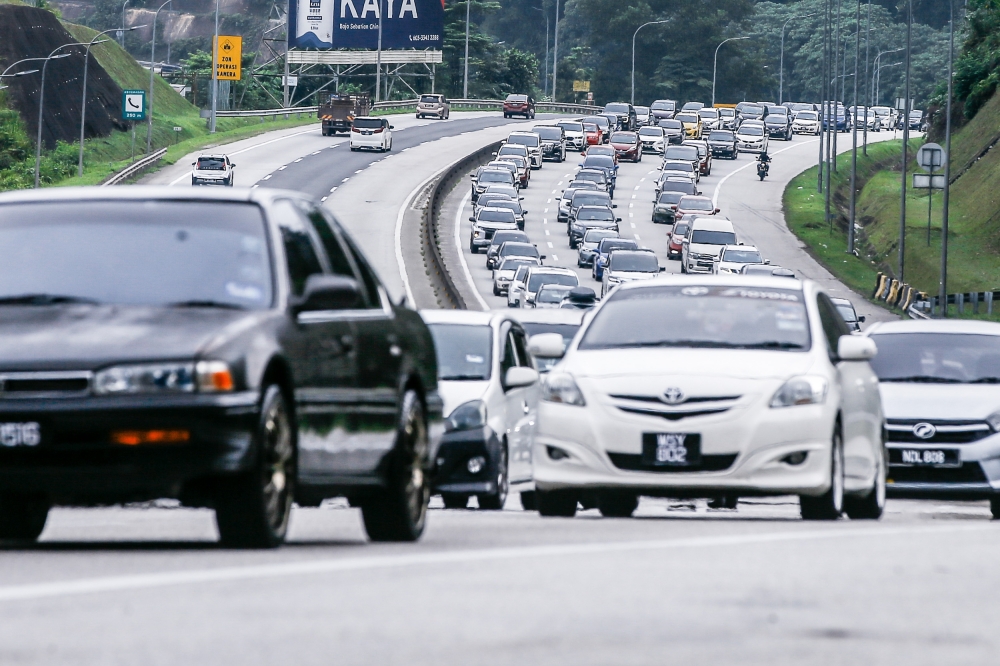JANUARY 17 ― We refer to the statement by The Malaysian Automotive Association (MAA) as reported in Malay Mail on January 16, 2023. The nearly 800, 000 motor vehicles will be added to the 33. 08 million registered motor vehicles in 2022.
Although this is good news for the industry, the increasing number of vehicles not only contribute to very challenging road congestion and traffic jams, but also, other side effects that are no less important. One of them is air pollution. Another is global warming which is related to the heat waves we are currently experiencing.
A study by the UK’s Grantham Institute for Climate Change and the Environment, indicate that a heatwave that would have had a one in 10 chance of occurring in any given year in the pre-industrial climate will now occur almost three times more frequently on average and be 1. 2 degree Celsius hotter. The main cause of global warming is the increasing amount of carbon dioxide in the atmosphere, most of which are caused by human activities such as motor vehicles usage.
With a population of 33 million, Malaysia has a disproportionately high carbon dioxide emission per capita ― at 7. 7 tonnes, much higher than that of Thailand’s 3. 7 tonnes and Indonesia’s 2.
3 tonnes (data as of 2019). It is estimated that road transport contributes about 21 per cent of the total carbon dioxide emissions in Malaysia at 21 per cent in 2016. With the increasing number of cars on the road, this is expected to increase.
According to the US Environment Protection Agency, a typical passenger vehicle emits about 4. 6 metric tonnes of carbon dioxide per year. With 21 million active vehicles, the carbon dioxide emissions may reach nearly 100 million tons a year.
Last year, Malaysia increased its mitigation ambition with an unconditional target to cut carbon intensity against GDP by 45 per cent by 2030 compared to 2005 levels. Continuous rise in the number of petrol and diesel vehicles will not help in achieving this target. Governments and experts are looking into a variety of measures to control the growing number of cars on Malaysian roads.
Capping new car registration is one technique for lowering the growing number of cars on the road. Capping new car registration would involve setting a limit on the number of new cars that can be registered. This could be done through government regulations or policies that require car manufacturers to limit the number of cars they sell, or the number of cars a person can own.
While this may appear to be a viable solution, there are consequences to consider. Limiting the number of new cars that can be sold each year could harm the automotive sector, resulting in slower economic growth. Consumers may find it more difficult and expensive to purchase cars if new car registration is limited.
This could also lead to a car black market and unlawful practices. Alternatively, an end-of-life vehicle policy is an alternative solution that can be considered. The government can encourage people to switch to newer, more fuel-efficient, and lower-emission vehicles through old vehicle disposal incentive programs.
It may not be a popular solution among consumers who value the freedom and convenience of owning a car. A congestion tax is another solution by charging cars to enter congested areas during peak hours to help reduce traffic congestion, control air pollution and carbon dioxide emissions. This method has been implemented in many cities including London and Singapore.
Other solutions can also be considered such as vehicle sharing regulations, setting a minimum number of passengers in a vehicle or limiting the movement of vehicles based on registration numbers as in the City of Manila. Investment in efficient public transport is a prerequisite for the above initiatives. In addition, the implementation of these measures may face some difficulties, such as public acceptance.
To achieve more successful results, awareness and advocacy programs should be carried out not only by the government, but also by industry and the community. Users who understand the rationale for the need for these measures will more easily support them. Limiting the registration of new cars may not be the only approach in the solution.
Through the implementation of simultaneous strategies, Malaysia can achieve better results in reducing the total number of cars on the road, improving traffic congestion and air quality, and promoting sustainable transport. * Dr Omar bin Yaakob is a Professor at the Faculty of Mechanical Engineering, and Ir. Dr.
Mohd Azman bin Abas is the Director of Automotive Development Centre, Universiti Teknologi Malaysia. ** This is the personal opinion of the writer and does not necessarily represent the views of Malay Mail . .
From: malaymail
URL: https://www.malaymail.com/news/what-you-think/2024/01/17/is-it-time-to-limit-the-number-of-cars-omar-yaakob-and-mohd-azman-abas/112842



